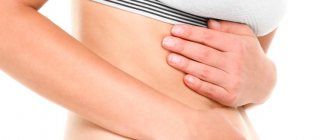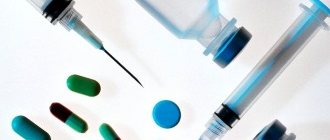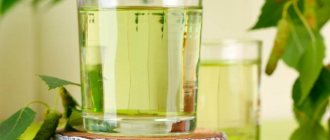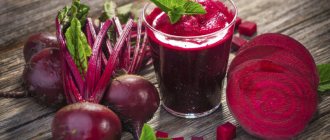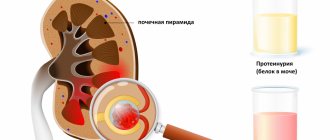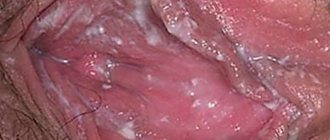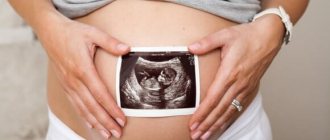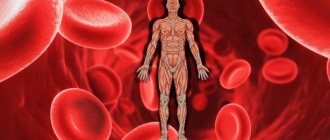Gastroenterologist
Vinogradov
Dmitry Alekseevich
4 years of experience
Gastroenterologist
Make an appointment
Millions of people of all ages suffer from heartburn. And only a quarter of patients turn to doctors for medical help. Symptoms include a burning sensation in the esophagus, a feeling of fullness in the stomach, pain in the lower chest and is accompanied by a bitter, acidic taste in the throat and mouth. Heartburn is not so harmless in its clinical nature. It is periodic or chronic in gastroesophageal reflux disease (GERD) and can vary in frequency and intensity. Pharmacy medications provide only temporary relief, so a visit to a gastroenterologist and the prescription of adequate therapy is the main recommendation.
Causes of heartburn
Unpleasant symptoms of heartburn occur due to irritation of the esophageal mucosa. Normally, the environment in the stomach is acidic; it is regulated by hydrochloric acid. In the esophagus – neutral. These two sections of the digestive tract are separated from each other by the sphincter. If the orbicularis muscle does not fully perform its function, reflux occurs (reverse movement of stomach contents). The esophagus is not protected from the negative effects of acid, which causes a burning sensation. The causes of heartburn may include the following:
- gastrointestinal diseases (GERD, ulcers, gastritis, cholecystitis);
- diaphragmatic hernia;
- cancer of the gastric cardia;
- frequent consumption of fresh baked goods, coffee, chocolate;
- drinking alcohol, smoking;
- diet with fatty foods;
- chronic stress;
- taking medications (NSAIDs, to lower blood pressure).
Features of the treatment of GREB with nocturnal hypersecretion of gastric juice
GERD is treated with antisecretory drugs. In the presence of endoscopic signs of GERD, treatment is more effective than when diagnosing non-erosive GERD. In case of ineffective treatment of non-erosive GERD, it is necessary to consider whether the patient is taking medications properly, whether the dose and duration of treatment are sufficient.
If non-erosive GERD is not treated effectively, other conditions should be considered. Often found:
- Functional dyspepsia. With this pathology, antisecretory therapy can relieve symptoms, but not enough.
- Regurgitation in patients with atrial syndrome, which may be associated with impaired peristalsis or lower function of the esophagus.
- Aerophagia.
- Achalasia.
- Eosinophilic esophagitis.
After endoscopic confirmation of GERD, and if there is no therapeutic response, it is necessary to determine whether the patient is taking the drug or dose correctly and check the duration of use, since resistance to PPIs is rare. Resistance is possible mainly due to a genetic mutation in the cytochrome system.
How to get rid of heartburn and its consequences
Chronic or frequent heartburn causes an inflammatory disease with a recurrent nature called esophagitis - this is the most common consequence. The resulting ulcers and their subsequent scarring provoke a narrowing of the esophagus, which interferes with food intake. Heartburn may also be accompanied by bloating. To improve your well-being, the following is recommended:
- exclude late dinner before bedtime;
- the upper body should be elevated 15-25 cm during rest;
- immediately after eating, you should not bend over or lie down;
- conduct an audit of food products;
- quit smoking and drinking alcohol;
- Avoid tight belts and clothing that compress the abdominal area.
When to urgently call an ambulance
If heartburn occurs in the stomach from inappropriate food, the situation is not so dangerous. You should be wary of pain and a burning sensation in the chest that occurs due to an attack of angina or an increasing threat of myocardial infarction. With progressive symptoms such as bloody vomiting and black stools, you should call an ambulance. JSC "Medicine" (clinic of academician Roitberg) in the Central Administrative District has emergency teams on staff, its own fleet of vehicles and the latest generation equipment. They work 24/7. Severe heartburn and stomach pain may also be due to an exacerbation of the ulcer, which is also a reason to call an ambulance. If necessary, the team will take care of transporting and accompanying the patient to the hospital for hospitalization, where a final diagnosis will be made and treatment will be prescribed.
When to see a doctor
If heartburn in the throat begins to bother you frequently, regardless of the time of day, body position, or with a balanced diet, you should consult a doctor. Attacks cannot be tolerated or ignored due to the possible transition of the underlying causes into a chronic condition. The formation of ulcers in the esophagus due to the constant influence of hydrochloric acid on the mucous membrane provokes bleeding. They can lead to Barrett's syndrome and the subsequent development of oncology. You need to make an appointment to undergo diagnostics and receive heartburn medication to stabilize your well-being.
Risk factors
In most cases, a burning sensation behind the sternum is caused by a violation of the diet and diet. Certain lifestyle habits also increase the risk of developing symptoms. The main risk factors for developing heartburn after eating:
- Binge eating. Both one-time during the holidays, and permanently due to incorrect eating habits: large portions, eating 1-2 times a day.
- Rest lying down immediately after eating.
- Abuse of certain foods (sweets, fried and fatty foods, chocolate, coffee, strong tea, sour foods, spicy foods and others).
- Excess weight due to increased intra-abdominal pressure. By the same principle, pregnant girls are susceptible to heartburn, especially in the last trimester.
- Wearing tight, tight clothing that does not fit. Especially with excessive pressure on the waist.
- Smoking helps relax the sphincter between the esophagus and stomach.
- Taking certain medications: antihypertensives, sedatives, antidepressants, antiarrhythmics (you cannot stop taking prescribed medications on your own, you must first consult the doctor who prescribed them)2,3,4.
The listed risk factors can cause an unpleasant symptom even in a completely healthy person. Also, pain and heartburn after eating can be a sign of certain diseases. Gastroesophageal reflux is one of the main manifestations of gastroesophageal reflux disease. It is characterized by persistent relaxation of the muscular sphincter between the esophagus and stomach. The disease can be suspected if heartburn bothers you once a week or more often for at least 3 months4.
Root causes and treatment of heartburn
Symptoms may return if the underlying cause is not determined. In severe cases, the doctor may recommend going to the hospital to clarify them. At JSC “Medicine” (academician Roitberg’s clinic) in the center of Moscow, you can undergo diagnostics and take tests to establish the correct diagnosis. For this purpose they prescribe:
- laboratory blood tests (general, biochemical, for the presence of antibodies to Helicobacter pylori);
- gastroscopy;
- urease breath test (detection of Helicobacter pylori infection);
- esophageal pH monitoring;
- esophagomanometry, etc.
Symptom of heartburn during pregnancy
It is a fact that 80% of women experience heartburn when carrying a child from the first months of pregnancy. Increased progesterone in the body relaxes the muscles, which causes dysfunction of the esophageal sphincter. Another reason is increased abdominal pressure due to fetal growth. Heartburn pills (antacids) without complex chemical compounds help to cope with poor health. They usually have a minty flavor, which helps get rid of the sour and bitter taste in the mouth. They are prescribed by a doctor after consultation.
Treating heartburn at home
A fast-acting remedy for heartburn is baking soda in the amount of 1/2 tsp. per glass of water. You need to drink in small sips. The method is suitable only for emergency cases, but with frequent use of sodium carbonate, the acid-base balance is disturbed. To maintain it, you should also give up citrus fruits and carbonated drinks, raw onions and garlic, hot and spicy foods.
Following a diet is better than soda for heartburn during periods of exacerbation. Small meals 5-6 times a day will also be useful. Chamomile tea and drinking low-alkaline mineral waters can also help. Popular folk remedies or how to get rid of heartburn at home is a set of the following recommendations:
- drink tea from St. John's wort and plantain (1 tbsp per 200 ml of water);
- drink 1 tbsp. 15 minutes before meals, infusion of dried dried fruit (20 g per 200 ml of water);
- eat buckwheat daily;
- chew barley grains during an attack.
Helicobacter pylor and night heartburn
Scientists have identified a connection between nocturnal hypersecretion of gastric juice and the presence of Helicobacter pylor (H. pylori) bacteria. Interestingly, antisecretory therapy without H. pylori treatment has been found to provide better control of gastric acid secretion. This may be due to nitrogen produced by H. pylori. This is one reason why the benefits and harms of eradicating this bacterium in patients with GERD are still so widely debated.
Prevention is the best cure for heartburn
Preventing reflux is part of treatment by following a diet and limiting negative factors. Remember that heartburn from water is reduced by diluting the amount of hydrochloric acid in the stomach. Drink it throughout the day. Avoid eating large portions of food and lead a healthy lifestyle. In this case, heartburn and nausea will not bother you. If attacks are frequent and symptoms last for 2-3 months, you need to undergo an examination, which will prevent the exclusion of severe diagnoses.
What foods can trigger heartburn?
The likelihood of developing heartburn and belching after eating increases if you consume the following foods:
- all types of citrus fruits;
- products containing cocoa beans;
- coffee, tea, carbonated drinks;
- tomatoes;
- cabbage;
- legumes;
- dairy products (except low-fat fermented milk);
- fatty meats and fish and broths made from them;
- baked goods and sweets;
- sour berries;
- apples;
- hot sauces and almost all spices;
- alcohol3.
A healthy person does not need to completely eliminate these foods, but they do need to monitor their amounts. For those who often experience heartburn, it is recommended to remove the listed foods from their diet so as not to aggravate the condition2.
Heartburn with gastritis: which doctor should I contact?
A gastroenterologist specializes in the treatment of gastrointestinal diseases. If additional research is necessary, other specialized specialists may be involved. For consultation, examination and treatment, please call +7 (495) 775-73-60 or leave a request for feedback on the website with your contact details. The clinic is located at: Moscow, 2nd Tverskoy-Yamskoy lane, building 10, Mayakovskaya metro station. The following stations are also within walking distance: Belorusskaya, Tverskaya, Novoslobodskaya and Chekhovskaya.
Features of the choice of drugs for the treatment of nocturnal hypersecretion of gastric juice
The content of the article
In the treatment of diseases associated with increased gastric acidity, antisecretory drugs - proton pump inhibitors (PPIs) - are widely used. They are effective for stomach and duodenal ulcers, GERD, and erosive esophagitis.
Mechanism of action of proton pump inhibitors
These diseases cause discomfort, can cause bleeding, lead to perforation of the walls, and predispose to cancer. But the effect of PPIs specifically on nocturnal hypersecretion of gastric juice is questionable. In addition, they have significant side effects, especially in older patients with chronic diseases and taking other medications.
A second option for antisecretory drugs that have also shown effectiveness in treating esophageal diseases are histamine 2 receptor antagonists (H2RAs). Moreover, their list of side effects and contraindications is shorter compared to PPIs, regardless of the severity of clinical symptoms, age of patients, concomitant diseases, or medications taken.
Heartburn and related symptoms
The general clinical picture will help determine a preliminary diagnosis and conduct only the necessary studies.
Heartburn 15-20 minutes after eating is the result of dietary errors or stomach diseases. After eating, an “acid pocket” forms in the upper part of the stomach; from this reservoir, the contents flow back into the esophagus. With hyperacid gastritis, heartburn is accompanied by sharp pain in the epigastrium. With hypoacid gastritis, the pain is dull, often combined with constipation and bloating.
Heartburn before or at the beginning of a meal is gastroesophageal reflux.
Heartburn with bile indicates pathology of the liver and gallbladder. A burning sensation in the esophagus occurs 30 minutes to 2 hours after eating, driving or cycling and is accompanied by heaviness/pain in the right hypochondrium.
Heartburn after a course of antibiotics - a violation of the microflora (dysbacteriosis) provokes increased gas formation and an increase in intra-abdominal pressure.
Heartburn and bitterness in the mouth in the morning are the result of overeating at night, following a strict diet for weight loss, and eating “provoking” foods.
Heartburn and diarrhea (diarrhea) are signs of an inflammatory process in the gastrointestinal tract. Body temperature often rises.
Heartburn and bloating - consumption of coarse fiber, overeating, dysbiosis, chronic constipation, intolerance to dairy products.
Cough with heartburn - GERD, smoker's bronchitis.
Heartburn, nausea and vomiting - gastritis, ulcers and erosions of the stomach, side effects of medication. drugs, stomach cancer.
Heartburn, dizziness and weakness - gastrointestinal disease is combined with anemia/hypotension. The sudden appearance of painful symptoms may indicate a hypertensive crisis or developing myocardial infarction. Antacids don't help.
Heartburn and belching - occurs when eating avidly, talking while eating, or a hiatal hernia.
How to prevent heartburn?
If one of the above reasons applies to you, try to reconsider your habits and lifestyle. If you can't determine which food in your diet is causing heartburn, a food journal can help. Write down what you eat and notice when you start to experience heartburn. This way you can establish a connection between heartburn and certain foods. Perhaps the reason is one of the ingredients in the dish, the composition of which you do not know exactly. In this case, we advise you first of all to familiarize yourself with the composition of the products you buy or inquire about the composition of the dishes if you eat in a restaurant or cafe. Different people's bodies react differently to different heartburn catalyst foods, so you'll have to be a bit of a detective, there are no uniform rules for everyone, rather, there are exceptions!
How does heartburn occur?
Most often, heartburn occurs when acidic gastric juice affects the esophageal mucosa. This happens when the contents of the stomach reflux (in scientific terms, reflux) into the esophagus. The reason for such an unnatural process is incomplete closure of the sphincter (the valve that normally separates the esophagus and stomach). Aggressive gastric juice irritates the wall of the esophagus, which is manifested by a burning sensation.
